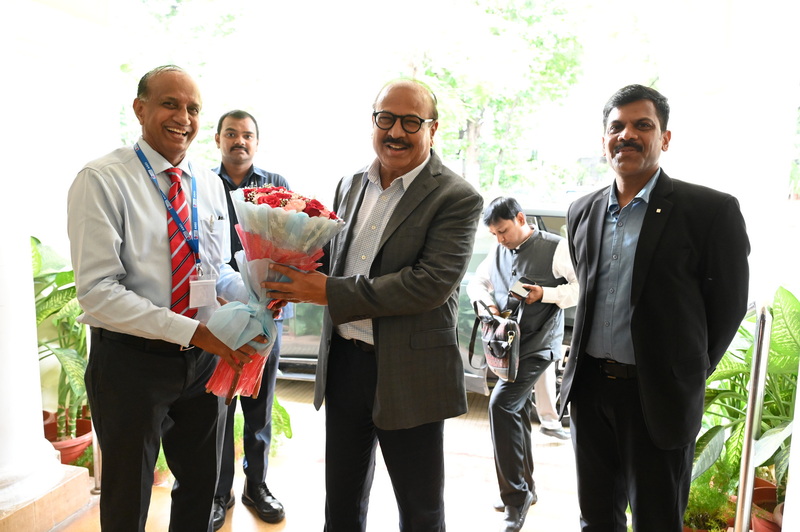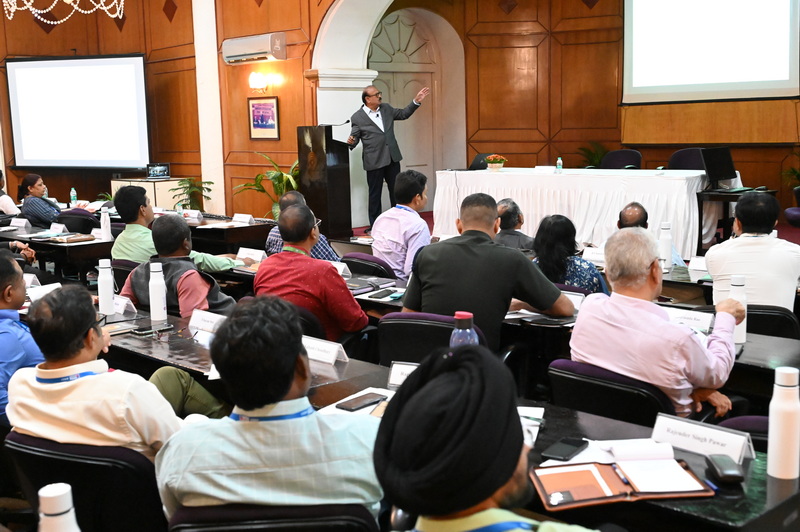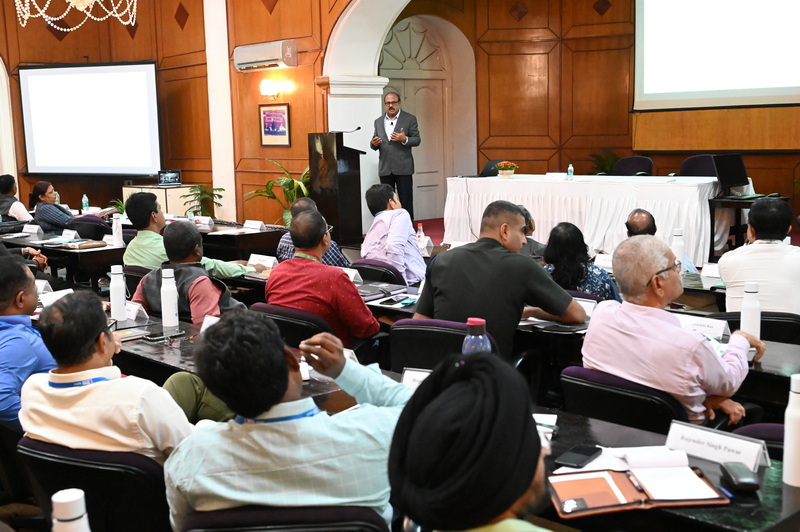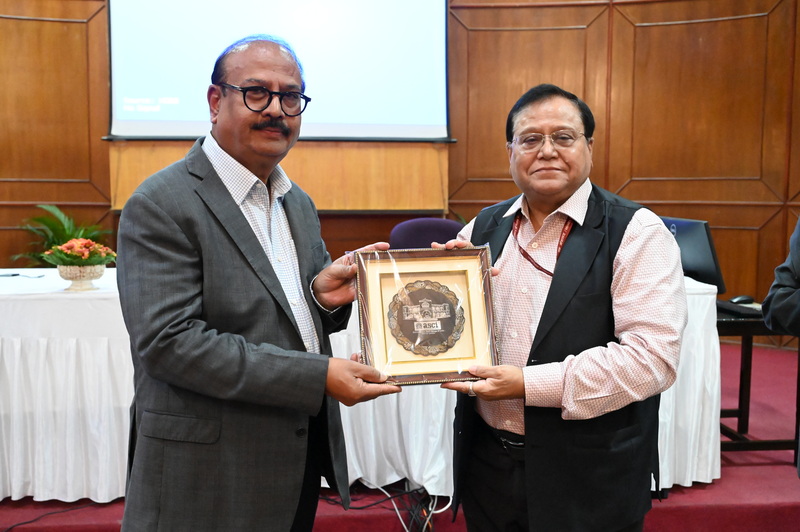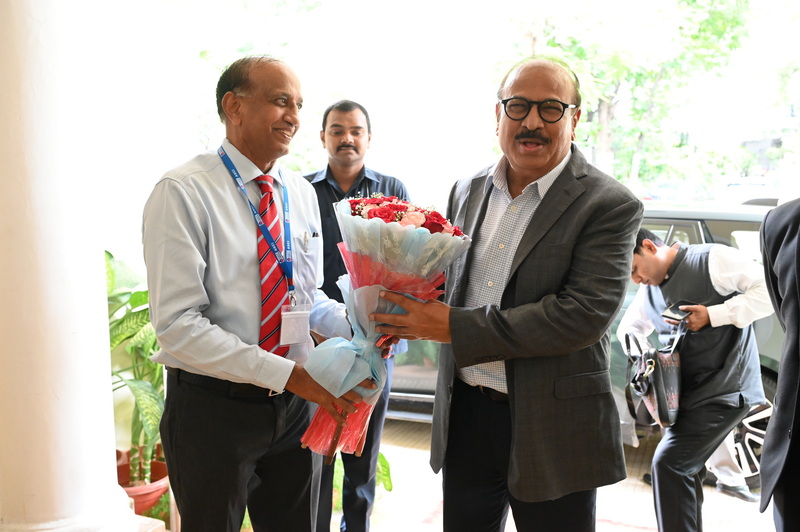Dr Krishna Ella,
Co-Founder & Executive Chairman, Bharat Biotech
The session delved into the historical and contemporary challenges in public health security, innovation, and preparedness. It highlighted concerns around proprietary and modern bio-warfare threats, alongside discussions on biological warfare, geopolitics, and energy equity. Bharat Biotech’s COVID-19 success story was presented as a case study in crisis-driven innovation.
Bharat Biotech’s expertise extends across human vaccines, knowledge repositories, and food and agriculture solutions, with notable global licensing achievements, including 70% adoption in China and 28% in the US. The session underscored the alarming rise and re-emergence of drug-resistant parasitic and tropical illnesses, predominantly affecting developing nations. On the front of future pandemic risks, it was pointed out that nearly 40% of viruses remain unknown, with an estimated 10,000 zoonotic viruses posing potential threats to humans, indicating a real danger of rapid mortality escalation during outbreaks. The historical context of pandemics was traced from plague and smallpox to anthrax and Cold War-era secret pathogen research, including recurring diseases like malaria, typhoid, and cholera, and recent cases such as the UK’s Foot & Mouth Disease. The critical role of human connectivity—through global trade, travel, and migration—in accelerating disease spread was emphasized, with bioterrorism remaining a persistent risk, evidenced by recent attempts to smuggle dangerous pathogens.
Regarding vaccine manufacturing challenges, the session noted post-pandemic industry shifts, with only 15–20 companies globally operating across multiple countries and Bharat Biotech emerging as a key contributor. The company's significant achievements include the efficacy trials for ROTAVAC and Typhoid Conjugate Vaccine, advancements in vaccines targeting antimicrobial resistance, and pioneering developments like the globally patented HNVAC pandemic flu vaccine, patented chikungunya and Zika vaccines (with technology transfer to Brazil), and Covaxin—India’s first indigenous COVID-19 vaccine, which also marked the world’s second-largest efficacy trial. India’s establishment of its first BSL-3 containment production facility further strengthens national preparedness for future health emergencies.
Looking ahead, Dr. Ella mentioned the establishment of a Global Innovation Centre and highlighted China's success with 800 products due to regulatory facilitation . He also announced India's largest cell and gene therapy facility, spanning 50,000 sq ft. While discussing future success, an acknowledgement of uncertainty was expressed with the phrase "How Far will be Successful - God Knows". Challenges related to regulatory processes in India and some other countries were broadly discussed.
A projected scientific revolution within the next decade, termed "BIGGER THAN INTERNET REVOLUTION," was outlined . This revolution is anticipated to involve the convergence of various disciplines, including AI, Robotics, EV Chemicals, Structural Biology, Gene Therapy, and Quantum technologies, fundamentally altering the sciences. The "Future of Structural Biology" specifically highlights how computation biology will significantly change the field, leading to new textbooks and a focus on new protein development, including "reverse science" for new proteins, monoclonal antibodies, and man-made proteins for applications like plastic degradation and pandemic response. A vast number of proteins (200 million) are projected to be modified, with deep science and deep algorithms being crucial for this research.
The session also outlined potential future threats related to biotechnology and data. Concerns were raised about the acquisition of hospitals by foreign private equity, giving them access to human genetic data, which could be exploited to identify vulnerabilities in populations. It warned about the potential for the weaponization of data and biology, where hacked genetic data could be used to design "tailor-made" biological or chemical agents to specifically target human populations, drawing parallels to historical events. Further concerns included the design of engineered pathogens that can evade antibiotics and exhibit slow virulence, and the potential for engineered molecules to selectively induce cancer. "Gain of function" research in Wuhan was specifically mentioned, implying concerns about the development of pathogens with enhanced capabilities, potentially capable of zoonotic transmission.
Finally, the session emphasized the importance of "Indigenisation of Innovation for Viksit Bharat@2047". It highlighted the need for enhanced synergy between academia, industry, scientific institutions (like DRDE), and "executors" (the audience). The core message underscored that "The more we collaborate, the stronger we become...". Viksit Bharat@2047 is described as a visionary roadmap by the Indian government to transform India into a developed nation by 2047, coinciding with its centenary of independence, encompassing economic prosperity, social advancement, technological innovation (including Generative AI), and environmental sustainability.

